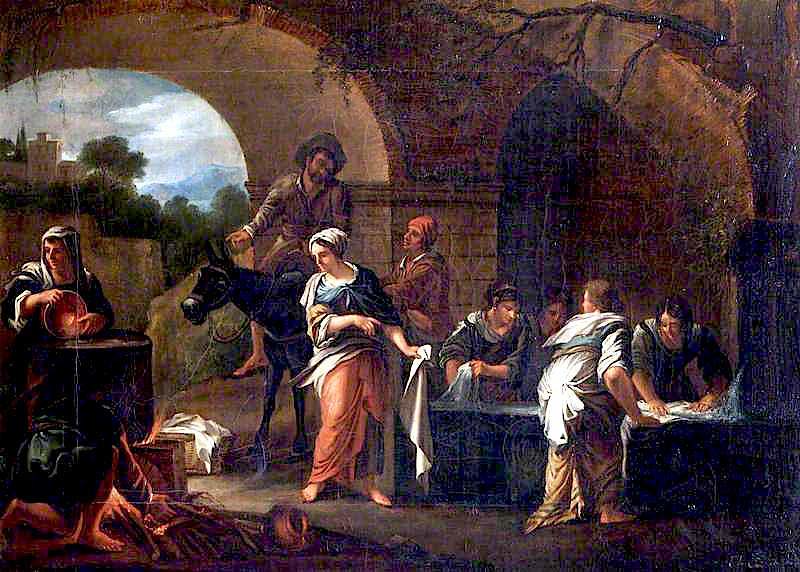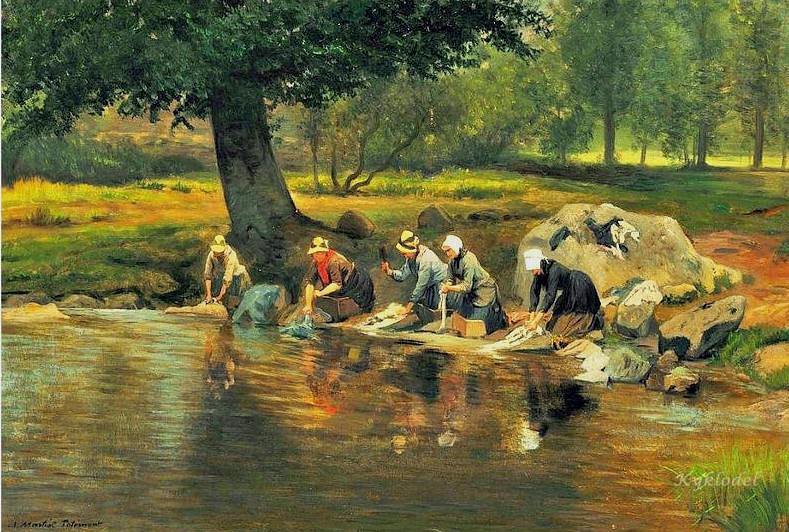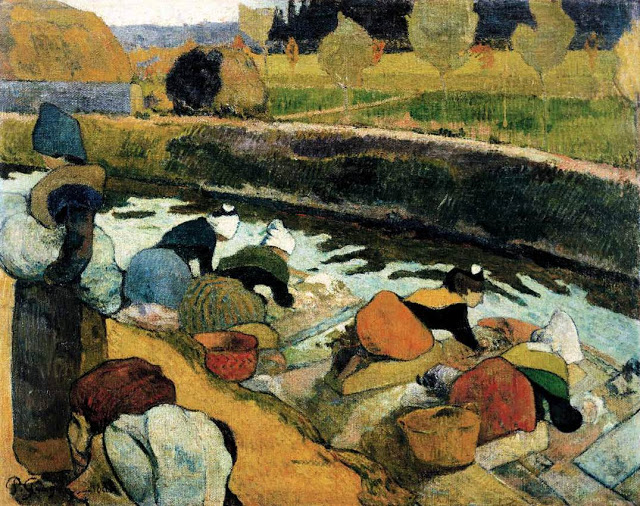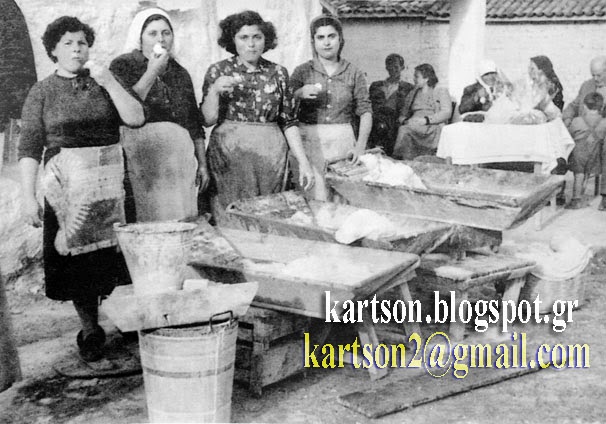Theseus
¥
I apologise for my absence but I am recovering from having our beloved dog of thirteen years put to sleep because of a rapid spread of secondary growths owing to thyroid cancer.
I would like to know what the old lady says after τα ποτάμια παγωμένα. She seems to use a different passive participle as well as saying τα νερά are something, certainly not κρυσταλλωμένα. What are the perfect passive participles she uses to describe the rivers & the waters. Otherwise the song follows the usual words. By the way, the performance by this old lady seems more authentic than several of the other YouTube clips.
Incidentally, is there a technical term for the stick with which the young lady in the clip beats her washing?
I would like to know what the old lady says after τα ποτάμια παγωμένα. She seems to use a different passive participle as well as saying τα νερά are something, certainly not κρυσταλλωμένα. What are the perfect passive participles she uses to describe the rivers & the waters. Otherwise the song follows the usual words. By the way, the performance by this old lady seems more authentic than several of the other YouTube clips.
Incidentally, is there a technical term for the stick with which the young lady in the clip beats her washing?




